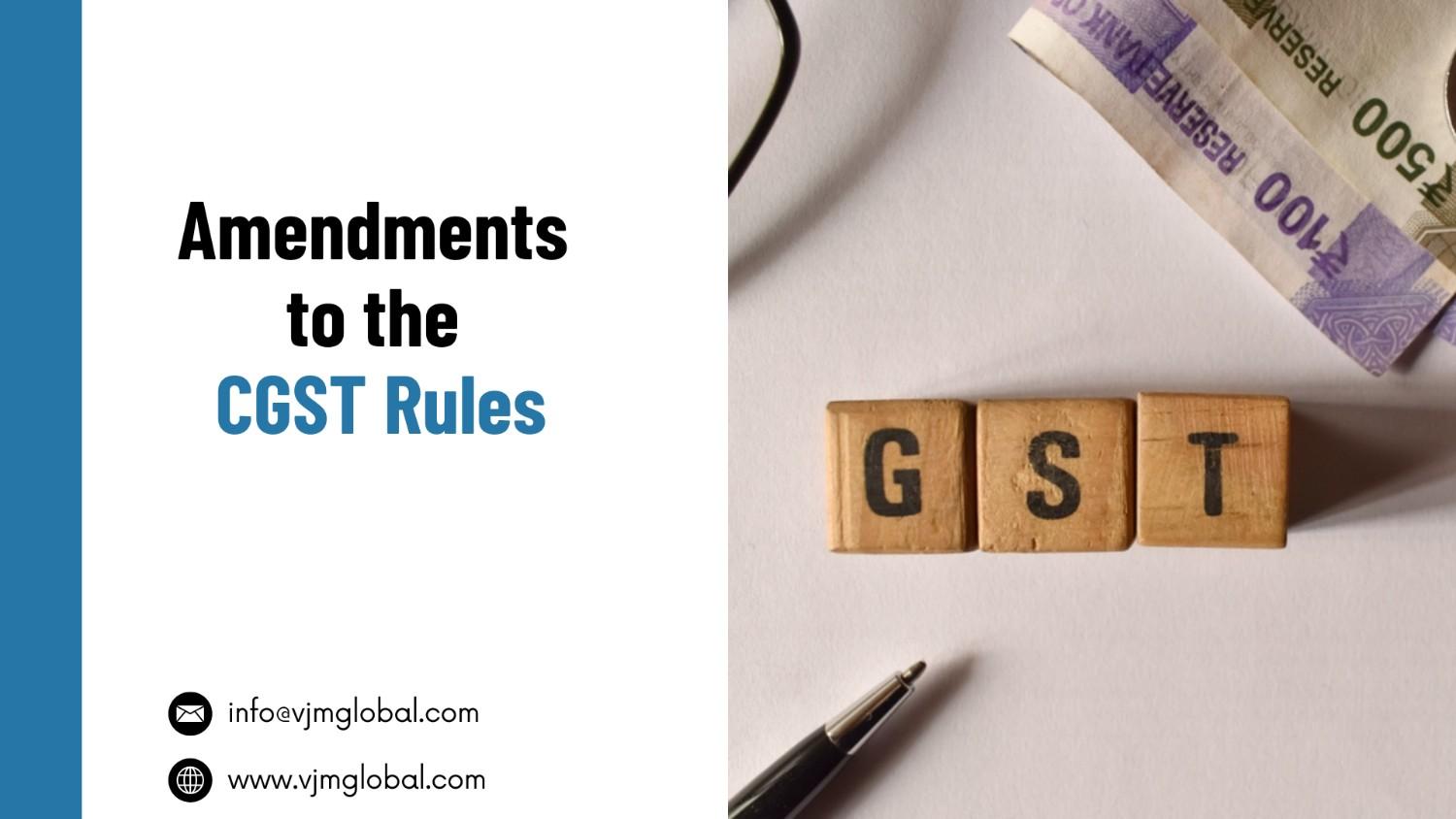
The Goods and Services Tax (‘GST’) Council in its 31st Meeting held on 22 December 2018 has made several taxpayer-friendly decisions.
The GST Council has tried to address some of the difficulties faced by taxpayers by making clarificatory amendments to the CGST Rules in response to the representations received from various stakeholders.
In order to give effect to the decisions of the GST Council, the Central Board of Indirect Taxes and Customs has issued Notification No. 74/2018 – Central Tax on 31 December 2018 in relation to various amendments pertaining to CGST Rules, 2017 (Link: )
The summary of the notification is given below for ease of reference:
Some Taxpayers may be required to register in a State/ Union Territory (‘UT’) as a Tax Deductor/ Tax Collector at Source. The taxpayer has to register by filing Form GST REG - 07.
In this process, it is possible that the taxpayers may not have physical presence in the other State/ UT.
In order to address this anomaly, the CGST Rules have been amended and Rule 1A has been inserted.
Now, the taxpayer undertaking registration for compliance with TCS provisions is required to mention the following:
As per Rule 45(3) of the CGST Rules, the details of challans by which goods sent from one job worker to another were required to be reported in Form GST ITC – 04.
These provisions resulted in additional reporting requirements and compliances for job workers.
The CGST Rules have now been amended to remove this reporting requirement.
Accordingly, the details of challans in respect of goods sent from one job worker to another are now no longer required to be reported in Form GST ITC – 04.
The signature or digital signature of the supplier/ authorised representative is required to be affixed on various documents issued under the GST law.
These provisions did not cover the situations where an electronic invoice was being issued.
The CGST Rules have now been amended to provide an exemption from affixing signature/ digital signature where the document is issued electronically in accordance with the provisions of the Information Technology Act, 2000.
Hence, the Rules now permit taxpayers to issue the following documents electronically:
o Tax Invoice in accordance with Rule 46 of the CGST Rules.
o Electronic Bill of Supply in accordance with Rule 49 of the CGST Rules.
o Consolidated Tax Invoice in accordance with Rule 54(2) of the CGST Rules.
o Ticket in accordance with Rule 54(4) of the CGST Rules.
In case of an inverted duty structure, taxpayers were eligible for refund of ITC under Rule 89(5) of the CGST Rules. The refund of ITC is computed based on the ratio of the turnover of inverted rated supplies as compared with the adjusted total turnover.
As per the current provisions, there was no reference to ‘Relevant period’ for computing the adjusted total turnover and compute the refund thereon.
The CGST Rules have now been amended to define Relevant Period as “the period for which the refund claim has been filed”.
Earlier, GST audit and assessment by the GST authorities was permitted to be undertaken on the basis of a Financial Year (‘FY’) or multiple FYs thereof.
The Rule 101(1) has now been amended to permit GST audit even for part of the FY.
Rule 109B has been inserted in relation to the notices and orders passed by the Revisional Authority.
Rule 109B: Notice to person and order of revisional authority in case of revision
Rule 109B has now been inserted in relation to the following action by the Revisional Authority:
Currently, taxpayers are allowed to generated e-way bills even of they have not filed the requisite returns (GSTR – 1 and GSTR – 3B).
In order to enforce discipline in compliance and ensure that genuine buyers are not affected due to the non-compliances by sellers, the CGST Rules have been amended vide insertion of a new Rule 138E.
Rule 138E - Restriction on furnishing of information in PART A of FORM GST EWB-01
A registered taxpayer will not be eligible to generate e-way bill on the GST portal if the taxpayer:
The Rules further provide for a relaxation of the same by the jurisdictional Commissioner by passing an order in writing, subject to conditions and restrictions as laid down.
FORM GST RFD - 01 used for filing refund claims has been replaced with a new form.
